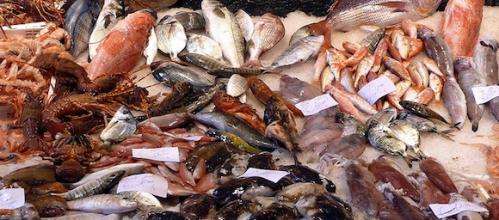Seafood Christmas lunch made more sustainable by chef and marine biologist

Just in time to help plan the Christmas lunch menu, a University of Melbourne zoologist and a Melbourne chef have teamed up to produce a sustainable seafood website.
The aim of the website 'GoodFishBadFish' is to make consumer choice easier by collating and interpreting the varied and often conflicting information about sustainable seafood, providing a unique resource for shopping and recipe ideas.
The website was developed by chef Oliver Edwards, with marine researcher John Ford from the University of Melbourne adding a scientific perspective to the site. It provides sustainable alternatives for species with limited supply, or where fishing techniques endanger other species or habitats.
"Sustainable seafood is about ensuring our great-grandchildren can also enjoy the delicious abundance of fresh seafood we see at the fishmonger today," said Mr Ford from the University's Department of Zoology.
"The GoodFishBadFish philosophy is that improving the state of the oceans and ending overfishing starts with consumers," added Mr Edwards. "I started the website with my partner Beth Bicknell to try and clear up some of the confusion that consumers may feel when purchasing seafood. Having John on board has now given us the opportunity to explore sustainability on a whole new level.
"Our aim is to make consumers aware of the power of their purchasing decisions, which starts with highlighting the demand-based nature of the food services industry. By supporting the development of sustainable fisheries we can encourage changes within the industry which will lead to better environmental outcomes."
Demand for seafood is greater than ever, and although many fishers and farmers are taking steps to reduce the impact on the environment, there is disagreement about what constitutes sustainable seafood among accreditation schemes, government assessments and seafood guides.
The website provides a simple list of species that are considered sustainable by all sources, as well as a table comparing and explaining conflicting assessments for consumers to make their own decisions.
"Everyone has different values, and this should hold for seafood sustainability as much as anything else. For example some fishing practices result in the deaths of seals and birds, which some consumers would consider unacceptable at any level, but for others if the seal population is not threatened, then it would be OK," Mr Ford said.
"There is so much conflicting advice out there about seafood sustainability, and we are attempting to clear it up a little by giving a range of advice that will suit all consumers.
"Firstly, we provide some simple and easy-to-remember sustainability tips to take to the fishmongers and a list of species with clear agreement on their sustainability credentials. And for those who want to delve even deeper, we provide an analysis of why there is disagreement over the sustainability of some species, so you can make up your own mind."
The website also has seasonal recipes and seafood preparation tips from Mr Edwards and guest chefs, as well as a 'Seafood Converter' which provides sustainable seafood alternatives for recipes.
"By telling suppliers and customers about sustainable seafood, chefs can also create awareness of the issue, so at GoodFishBadFish we make every effort to engage with the restaurant industry, providing support and helping to educate the next generation of chefs," Mr Edwards said.
Provided by University of Melbourne
















